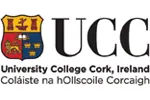

| The award | How you will study | Study duration | Course start | Domestic course fees | International course fees |
|---|---|---|---|---|---|
| BA (Hons) | - | - | September | EU 3000 | EUR 3000 |
Overview
"Geography is the study of earth as the home of people" Yi-Fu Tuan
Geographers examine the cultures, economies, societies, physical landscapes and environments of the Earth using a unique combination of the humanities, social and natural sciences. We view the Earth, its inhabitants and the processes that form and transform the world we live in using a spatial perspective. This particularly geographical way of looking at the world allows for an inter-disciplinary exploration of processes operating in specific places. As a student of geography, you will learn to view the world using this geographical lens. Geographers examine geographical processes in a variety of thematic areas within geography including landscape, heritage, migration, culture, food, tourism, environment, economy, cities, climate, geomorphology and development.
Course Details
Year 1 Modules:
Modules provide a critical overview of geography. Lectures, tutorials, practicals and other related activities are designed to encourage the development of skills over and above those specifically related to a specialist training in geography.
Students take 15 credits from Geography and an additional 45 credits from three other First Arts subjects (with the exception of Italian).
Years 2 and 3 Modules:
Courses become more specialised and you will have an opportunity to delve deeper into specific sub-branches of geography.
In Years 2 and 3, you can opt to take geography as a major (40 credits), joint (30 credits) or minor (20 credits) subject.
You will have opportunities to further develop your specific interests by taking optional courses in Years 2 and 3. A key aim of the final year programme is to expand your understanding of geography as a discipline with analysis and explanation of how different kinds of physical materials, peoples, institutions and ideas interact, impinge and co-exist with one another in regional combinations of varying complexity over the earth's surface.
In Years 2 and 3, all students must take at least one module of both physical and human geography.
See the College Calendar for additional information on the Programme and the Book of Modules for further information on the modules.
Fact File
Course Code: CK101, CK107, CK108
Course Title: Arts
Subject Title: Geography
College: Arts, Celtic Studies and Social Sciences
Qualifications: BA (Hons)
NFQ Level: Level 8
Costs: Full-time EU/EEA/Swiss State undergraduate students may be exempt from paying tuition fees. The State will pay the tuition fees for students who satisfy the Free Fees Criteria. In 2016/17 the Student Contribution Charge will be EUR 3,000 and the Capitation Fee will be EUR 165.
2017 Entry Requirements: Refer to CK101 and CK108
Entry Points: 2015: CK101: 350, CK108: 475, CK107: 340
Course Practicalities
Year 1:Geography lectures take place Monday to Friday. In Year 1, lectures take place three days per week, with additional tutorials, practicals, field work and essays.
Year 2:One required module focuses on research skills and data analysis (with associated individual and joint project work). A second obligatory module takes the form of a residential field week.
Year 3:A core module on the philosophy of geography is required and you may select a research dissertation (10 credits) module where you develop your own research interests (under staffsupervision). Opportunities are also available to develop advanced software training via our Geographical Information Systems (GIS) and remote sensing classes.
Field trips:In addition to classroom lectures, geography students are required to spend time on field trips. In Year 2, students must attend a week long field trip in Ireland or in Western Europe. Costs for each destination vary but on average range from EUR 200 to EUR 400. In Year 3, some modules include a field component.
Assessment
Written exams will take place before Christmas and in May. Not all modules will have formal examinations. Many modules use other types of assessment including practicals, essays, multiple choice exams, field work, photographic assignments and other work as prescribed by the department.
Application Procedure
Refer to CK101and CK108. Students choose subjects when registering for first year.
2017 Entry Requirements: Refer to CK101 and CK108
Entry Points: 2015: CK101: 350, CK108: 475, CK107: 340
Contact University College Cork (UCC) to find course entry requirements.
Below are some suggested courses at other providers that you may also be interested in:
Professional LLM in Canadian Common Law LLM
Osgoode Professional Development, York University
Find out moreLeader Communication in a Cross Cultural & Changing World Short Course
ESSCA School of Management – Online Programs
Find out moreIf you do not meet the entry requirements for this course then consider one of these courses from another institution:
There are 338 other courses listed from University College Cork (UCC). A selection of these are displayed below:
Join the StudyLink email list and never miss a chance to turn your study abroad dreams into reality!

Find out more about studying in Ireland